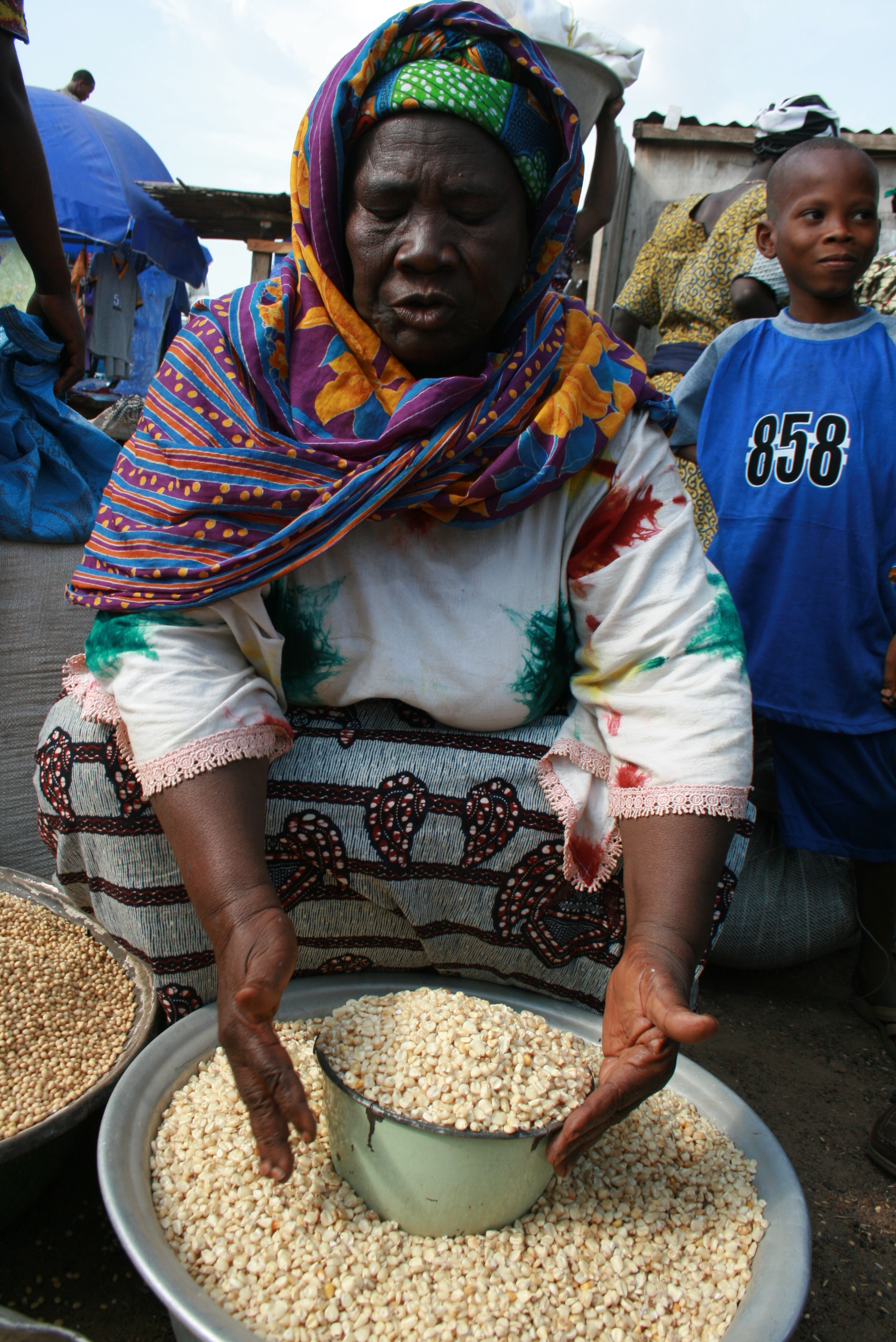Despite a 10-year-old law in Togo that criminalises FGM/C some ethnic groups in Togo still report clandestine cuttings.
While the number of women reporting having undergone FGM/C in Togo has decreased by half since 1996 to seven percent of the population in 2008, according to a recent UN-funded government study, it is not clear what role income-generating activities have had in this drop.
FGM/C, according to the UN Children's Fund (UNICEF) and Population Fund (UNFPA), refers to the removal of all or parts of the external female genitalia or to other injury to the female genital organs for non-medical reasons.
Five years ago Aridjetou Oumorou, 65, received her first loan from the NGO Tama’de, which means hope in one of the country’s ethnic languages in central Togo, where she had earned her living as a circumciser for more than 40 years.
In 2008, the government reported 19 percent of women from Tchamba in central Togo had undergone FGM/C – the highest concentration in the country.
Oumorou was placed in a group with five other women who each received a renewable annual small business loan of US$300. In exchange, they agreed to attend talks on running a business and the dangers of FGM/C. With their loans, the women from rural Tchamba are selling corn and sesame seeds at the local market, transforming peanuts into snacks and buying fertiliser for their families’ fields.
Tama’de advisor Gnon Bounkoundja told IRIN the women are assigned to groups because it is not enough to work with the cutters alone: “If you attack the supply of practitioners, but you don’t reduce the demand, then FGM will continue. Only some of the women who get loans are cutters. The others live nearby. We must work with the entire community.”
Though the region’s high rate of FGM/C has been linked to its predominantly Muslim population, the July 2008 government study found the practice is an ethnic rather than religious phenomenon; women who have been cut come primarily from five of Togo’s more than 35 ethnic groups, concentrated in the centre of the country.
Money and FGM/C
But it is not the money that has kept Oumorou, the cutter-turned-market vendor, from taking up her knives again: “I made much more money as a cutter than I do selling yams in the market now. If I cut 10 girls or young women, I could make $200 if they were not virgins, plus get palm oil, yams and chickens. If they were virgins, I was paid half as much since there are fewer chances for complications.”
When asked why she has not continued with her decades-long FGM/C work if it was more profitable, she replied: “It is not about the money, but the fact I could kill girls. Now I know better and would not do that again, no matter the fee.”
In the government FGM/C study, most of the more than 5,500 men and women surveyed in Togo had heard about the dangers of FGM/C, which include life-long pain, HIV infection and gynaecological problems.
But only one-third knew FGM/C has been illegal in Togo since 1998.
Someone found guilty of carrying out FGM/C can be sentenced to 10 years in prison and up to $2,000 in fines. The study reported two recorded cases in 2000 where the father and circumciser responsible for the mutilation of two girls were imprisoned for one year and forced to pay more than $200 each.
Next door
In neighbouring Benin where FGM/C is also outlawed, the government and its NGO partners also run microcredit programmes aimed at luring cutters to lay down their knives.
But in many cases it is not long before they take up the work again – secretly – said Scholastique Assegba, president of the Cotonou-based non-profit network Women in Law and Development in Africa. “I cannot tell you how many public declaration ceremonies we have had with women swearing ‘never again’. When we do follow up, we find they are back at it, perhaps not here in Benin where they are known, but they cross the border into Togo where they can continue FGM in anonymity.”
When asked what she thought drew women into clandestine cutting, and whether the recent spike in the cost of living has pushed them to resume their outlawed work, Assegba replied: “There are many reasons cutters do what they do, including honour, prestige – people seek them out from afar – and yes, perhaps also money.”
pt/np
This article was produced by IRIN News while it was part of the United Nations Office for the Coordination of Humanitarian Affairs. Please send queries on copyright or liability to the UN. For more information: https://shop.un.org/rights-permissions





